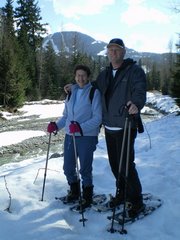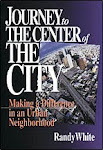Tina stood on a chair to reach for the alphabet that was strung across and around the top of the tiny tutoring room at the back of our house last night. I couldn't bear to watch the dismantling. But so much of language has been out of reach for the children who filled this place over the last 15 years, it seemed appropriate that taking it down should be hard for us as well. With our transitions to new positions, the Wise Old Owl reading and homework club is shifting to another location and we are clearing out the space. I poked my head in briefly to check her progress. Tina is nothing if not efficient. She had already boxed the books, stacked the attendance posters with names of kids we have grown to love -- Lupita, Bobby, Keeshawn, Victoria, Eternity and hundreds of others. The ancient, donated iMacs were being unplugged. The globe of the world sat leaning in the corner - A Swiftly Tilting Planet.
Not one to instantly recognize my emotions, I turned away -- had to get out of there. If my initial fear was that the faces of the kids who had picked out books in that room over the years would accuse me of abandoning them, I needn't have feared. They are always too gracious and appreciative of any effort on their behalf, and too accepting of what must seem like arbitrary changes to their options for that. What I am feeling is grief.
I ran the program at first, scouring the neighborhood on my moped for any available kid who wanted to come for an hour, read a book, do homework with a college student, play a game, sing a song, pray a prayer and get a snack. I met parents and siblings, got to know some of their stories. Many times I walked walk down a street in the neighborhood and children ran up to me, hugging my legs and yelling "Pastor Raaaaaaaaandy!" It became my primary way of understanding what was happening in Lowell, and a way to ensure that my white, middle class eyes could not avoid the realities of life there, and my whiter, middle class mind did not give in to the tidy explanations of middle class culture as to why the poor are poor.
After a few years we had staff take over the program, and as my work caused me to travel more I would miss weeks. But if I was in town I would make sure to come and play the song at the end, to lead a devotion for the college students who were there as tutors, to share a meal with some of them afterward. Tina would be cooking that meal as the program ended, and the kids would walk through the kitchen, interested in what she was making, and of course drooling over the smell of it. What I loved most was seeing kids matched with tutors, siting on benches together, engaged. Brilliant students from Japan, struggling with their English, helping bright students from the 'hood struggling with their English, and everybody winning in the process. We held cooking demonstrations by professional bakers, folded orogami, had an artist come to display watercolor technique, a physical therapist to talk about kinetic energy. With every special feature, my whole insides smiled.
Our ancient, grafted orange/grapefruit tree forms a canopy over the back yard, and each December as the program entered its last week of the term, the children jumped for the lowest fruit. They held them like prizes, would take a second one home for a Mom or a little brother. We would collect the rest and put it in gift bags to deliver to their families at Christmas. My whole insides smiled.
But lest we succumb to nostalgia, the program was also a major inconvenience, and contained pieces that could act like hidden coral in the shore of our week. The preparation and cleanup, the snack wrappers in the yard, the kids with attitude, the damage to property or the simple wear and tear; any of these things could leave our toes bleeding and sore, and won't be missed.
Yet I still grieve. I feel proud of these 15 years. Glad to have loved these kids with our modest effort. Sorry that we will miss what is next for them, though some of them still come by to check in with us. Perhaps I grieve the loss of that inside smile that hosting this outreach created.
We are making plans for the tutoring room, this old 10x10 sleeping porch wrapped around with seven windows. It has great light, has a bathroom, and is connected to our kitchen and back office. It will make a nice breakfast nook, or guest room, or a place to set up art projects -- stained glass or mosaic, or perhaps Tina's sewing machine. Like any change, it is filled with a combination of loss and possibility, of a death and a rebirth.
The alphabet cards are now in a jumble in a box, along with the books. Out of sequence, I can imagine them reassembling on their own in the half-light of their storage, but in a new order of their own making. My mind's eye says that they now spell out a sentence: "get us to the next room." A part of my heart has been boxed with them, and won't be free until they are.













